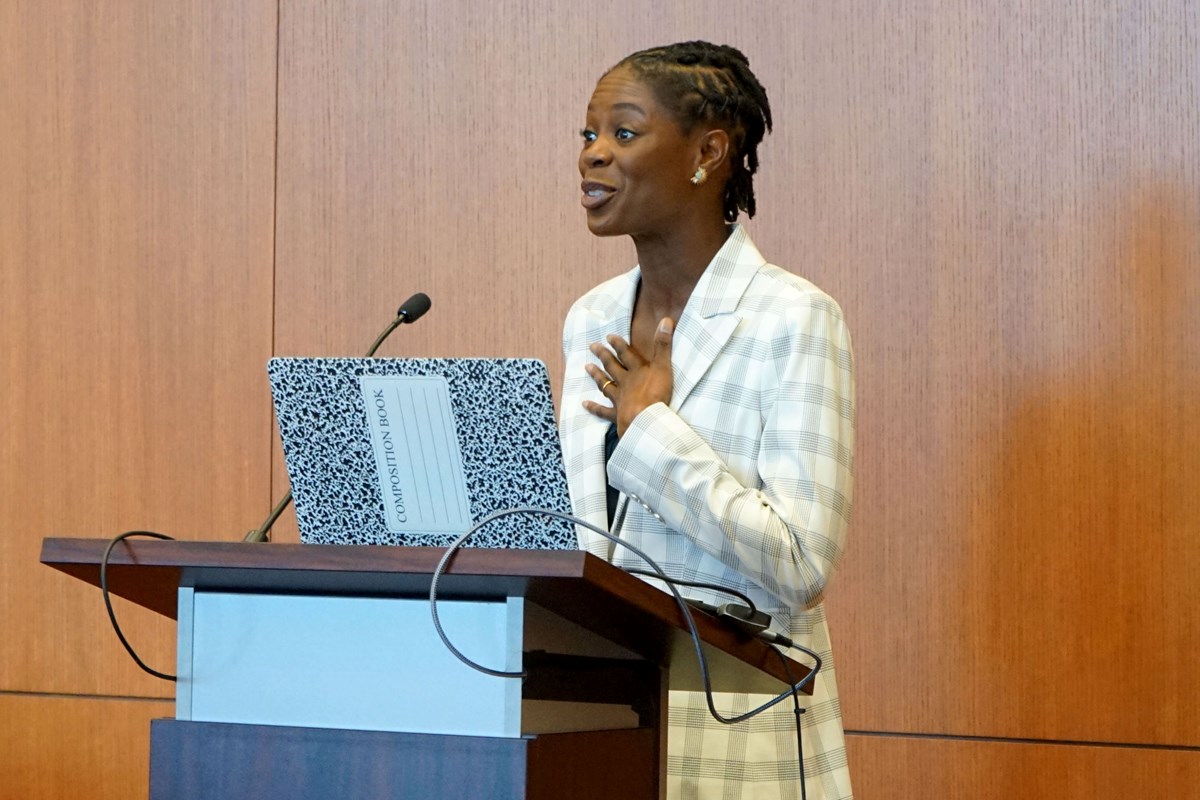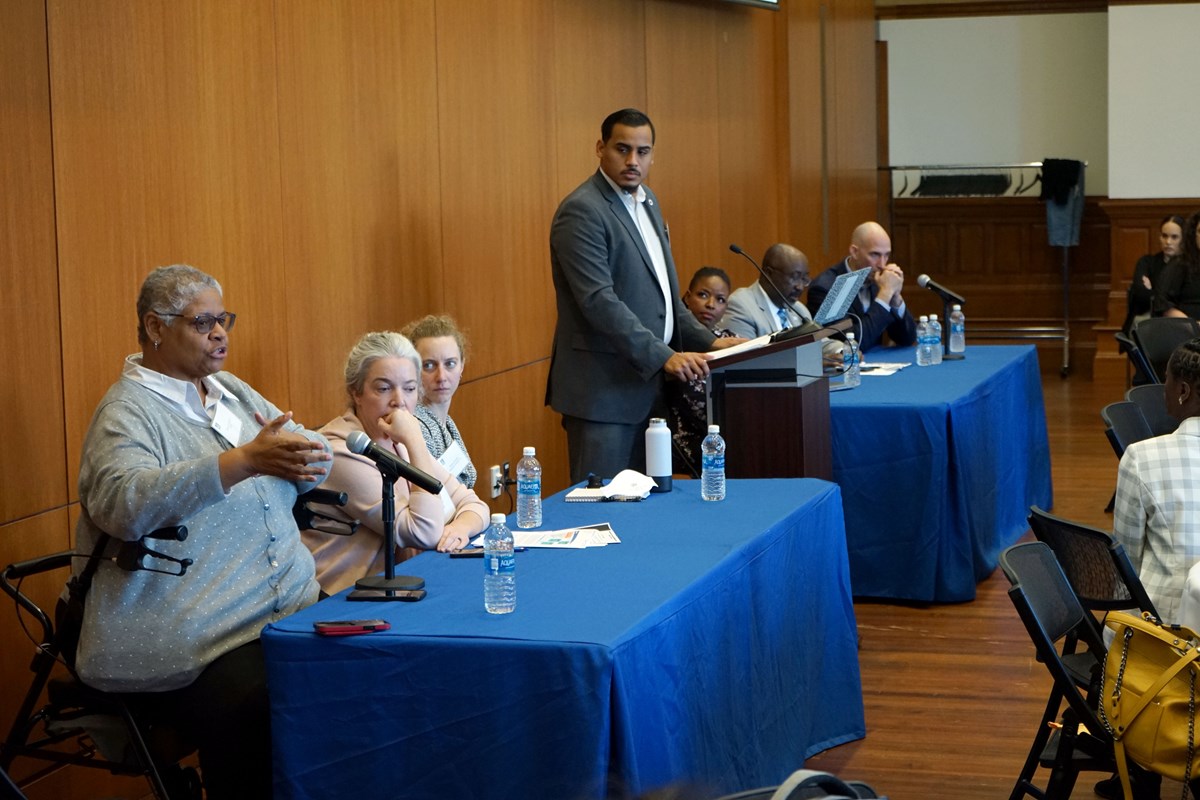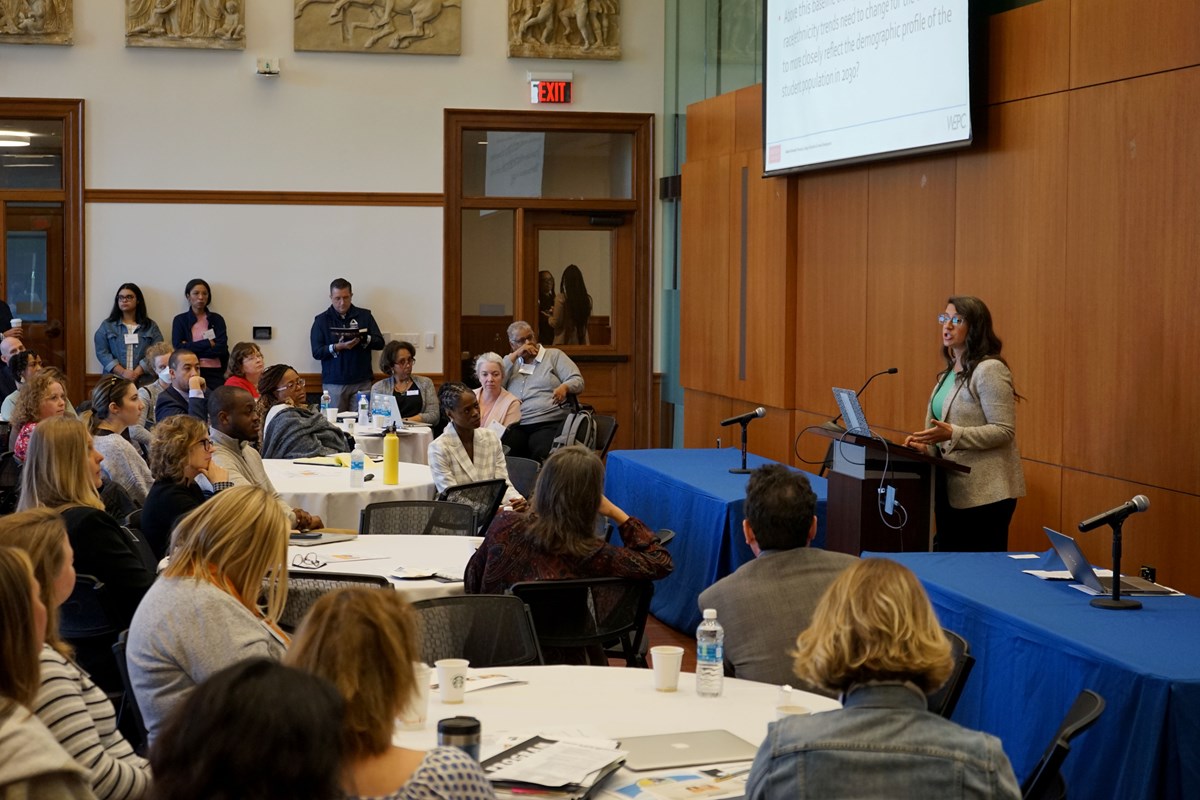School of Education Hosts Summit to Address Gaps in Teacher Retention and Diversity

10/31/2023
By Marlon Pitter
For Abiola Farinde-Wu, an associate professor and director of the Urban Education, Leadership and Policy Studies Program at UMass Boston, having Black teachers made a huge difference in her education – and her career.
“I was the Black teacher I had many years before. I am an excellent Black teacher because I had excellent Black teachers,” said Farinde-Wu, who taught high school English before becoming a professor.
As the keynote speaker of the [Re]building the Teacher Workforce Summit, which was organized by UML’s School of Education, Farinde-Wu discussed how changes in teacher education programs could help diversify the industry. The event, held at Coburn Hall, drew educators and advocates from around the state.
Farinde-Wu said teacher education programs should revise their curricula to focus more on “intersectionality” – the interconnected social categorizations such as race and gender that can lead to compounding discrimination. In addition, teacher education programs should offer more real-world experiences, include additional social-emotional learning and give longer residency periods, where candidates are paired with an experienced teacher and mentor with whom they can work closely, she said.
These improvements would bolster the preparation and retention of new educators, especially those of color, Farinde-Wu said.

Melanie Rucinski, a fellow at Harvard University’s Center for Education Policy Research, said racial disparities emerge early in the teacher training pipeline. Despite being as likely to earn a teaching position as white candidates once they’re certified, candidates of color are less likely to pass teaching licensure tests in Massachusetts, she said.
“Over 80% of people who are taking the teacher certification test are white,” Ruckinski said. “Massachusetts (K-12) students are not 80% white. Massachusetts college students are not 80% white.”
While the percentage of newly hired teachers of color has increased statewide, it remains disproportionate to the rising percentage of students of color in Massachusetts, said Meagan Comb, executive director of the Wheelock Educational Policy Center at Boston University.
The number of teachers of color rose from 7% of new hires in 2011 to 18% of new hires in 2022, but students of color comprise nearly 46% of K-12 pupils in Massachusetts. Meanwhile, white teachers make up 86% of the total teacher workforce in the state, according to Comb.
“This increase is a reflection of a lot of intentionality on a lot of fronts across the state, yet it remains a fraction of the demographic profile of our students,” she said.

The discussion panel included Nicole Harris, associate dean and interim executive director of the McKeown School of Education at Salem State University; Rashaun Martin, acting managing director of retention, cultivation and diversity programs at Boston Public Schools; Claire Abbott, executive director of the Office of Educator Effectiveness at the Department of Elementary and Secondary Education (DESE); Darcy Fernandes, senior associate commissioner at DESE; and Ben Forman, research director at MassINC, along with Rucinski. State Rep. Manny Cruz moderated the panel.
The event was sponsored by the School of Education, the College of Fine Arts, Humanities and Social Sciences (as part of the FAHSS Dean’s Speaker Series), the Rappaport Institute for Greater Boston, the Great Schools Partnership, the Teachers’ Lounge, the Young People’s Project, Educators for Excellence, MACTE and the He Is Me Institute.
